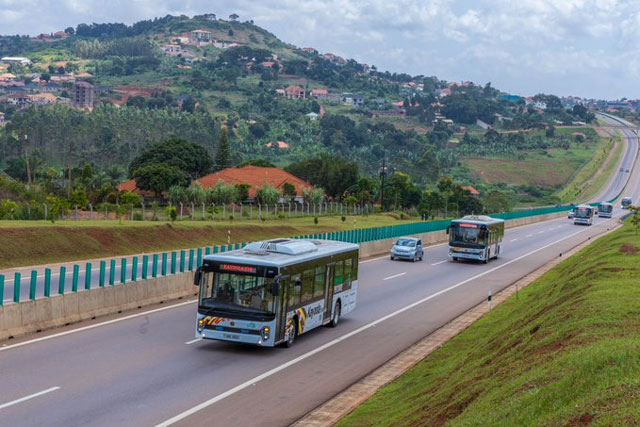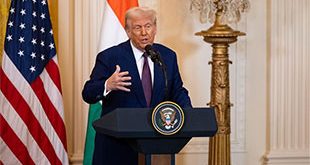
Across Africa, public transport is embracing electrification at an unprecedented pace. Municipal administrations are taking the lead, forging vital partnerships with private enterprises to drive this eco-friendly evolution of bus fleets.
SPECIAL REPORT | BIRD AGENCY | South Africa is the latest country to take the leap to sustainable urban transportation after the Cape Town-based Golden Arrow Bus Service unveiled an ambitious plan to electrify its entire fleet of 1100 buses – a strategic move that is a significant step towards greener public transportation in the country.
TopAuto.co.za, a motoring news platform, reports that Golden Arrow – South Africa’s largest public transportation service – will electrify 60 buses from its fleet every year beginning 2024 until it has fully replaced the diesel-powered buses.
Golden Arrow is owned by Hosken Consolidated Investments Limited (HCI), a black empowerment investment company listed on the JSE Securities Exchange and whose major shareholder is the South African Clothing and Textile Workers Union. BYD is China’s largest electric automobile manufacturer.
The collaboration has already yielded positive results, with the successful piloting of two electric buses – a 37-seater and a 65-seater.
The buses completed rigorous testing, covering 7,000 kilometres without passengers and an additional 50,000 kilometers with passengers onboard, show-casing their reliability and suitability for Cape Town’s demanding urban terrain, according to TopAuto.
Crucially, the buses demonstrated they could handle Cape Town’s steep roads.
A key driver behind this electrification push is the substantial cost savings associated with electric buses.
In a past interview on engineeringnews.co.za, Gideon Neethling, an engineer at Golden Arrow, highlighted the compelling advantage of electric buses in terms of operating costs.
“Compared to the current diesel price, we expect the electricity costs to be approximately 70% less than the equivalent diesel costs per kilometre,” he stated.
The momentum doesn’t stop at there. Cape Town’s success story has the potential to trigger a domino effect across the nation.
A reports in electrive.com suggests that Cape Town could soon extend electrification efforts to its MyCiti fleet, consisting of more than 374 buses.
Beyond South Africa’s borders, other African nations are also stepping onto the electrification stage of their public urban transportation.
Kenya, for instance, has seen private firms like Basigo pioneering the transition to electric mass transit buses. The company has introduced 36-seater e-buses tailored for the Kenyan market.
Basigo has also entered the Rwanda’s market, while a partnership between the Rwandan government and Vivo Energy for over 200 e-buses demonstrates the growing regional momentum.
Roam Motors, another player in Kenya, is capitalising on the burgeoning interest in electric buses with designed-for-purpose e-buses, crafted for the bus rapid transit system, or BRTs.
Mega-cities like Lagos and Cairo are also embracing the electric bus revolution in an effort to green the urban commuting experience.
Lagos has already introduced an initial set of e-buses through a collaborative effort with Oando Clean Energy Ltd and the Lagos State Government. Through agreements with partners like Yutong Bus Co Ltd, Lagos envisions a substantial fleet of 12,000 e-buses within the next 7 years, according to sustainablebus.com.
Egypt, a front-runner, is making even greater strides, with cities like Cairo, Alexandria, and Sharm El-Sheikh becoming e-bus hubs.
While these cities have shown their commitment through initiatives like the deployment of over 140 e-buses during the 2022 Africa’s COP event, the Ministry of Transport is implementing the ambitious Cairo Ring Road, a project that further underscores the potential for increased e-bus adoption, promising more than 100 locally manufactured e-buses operating on a 106-kilometre BRT system.
As Africa embarks on a path towards electric urban transport, the importance of infrastructure investment such as charging systems cannot be overstated.
However, for Peju Adebajo, an economic industrialist and renewable energy policy expert, countries should look beyond the infrastructure.
“We should forget charging stations and move straight to smart roads since the road infrastructure in Africa also needs an overhaul,” she explained.
The outlook for Africa’s electric bus market is promising, with Mordor Intelligence projecting its value to surge to some US$1.5 billion by 2027.
*****
SOURCE: bird story agency
 The Independent Uganda: You get the Truth we Pay the Price
The Independent Uganda: You get the Truth we Pay the Price


